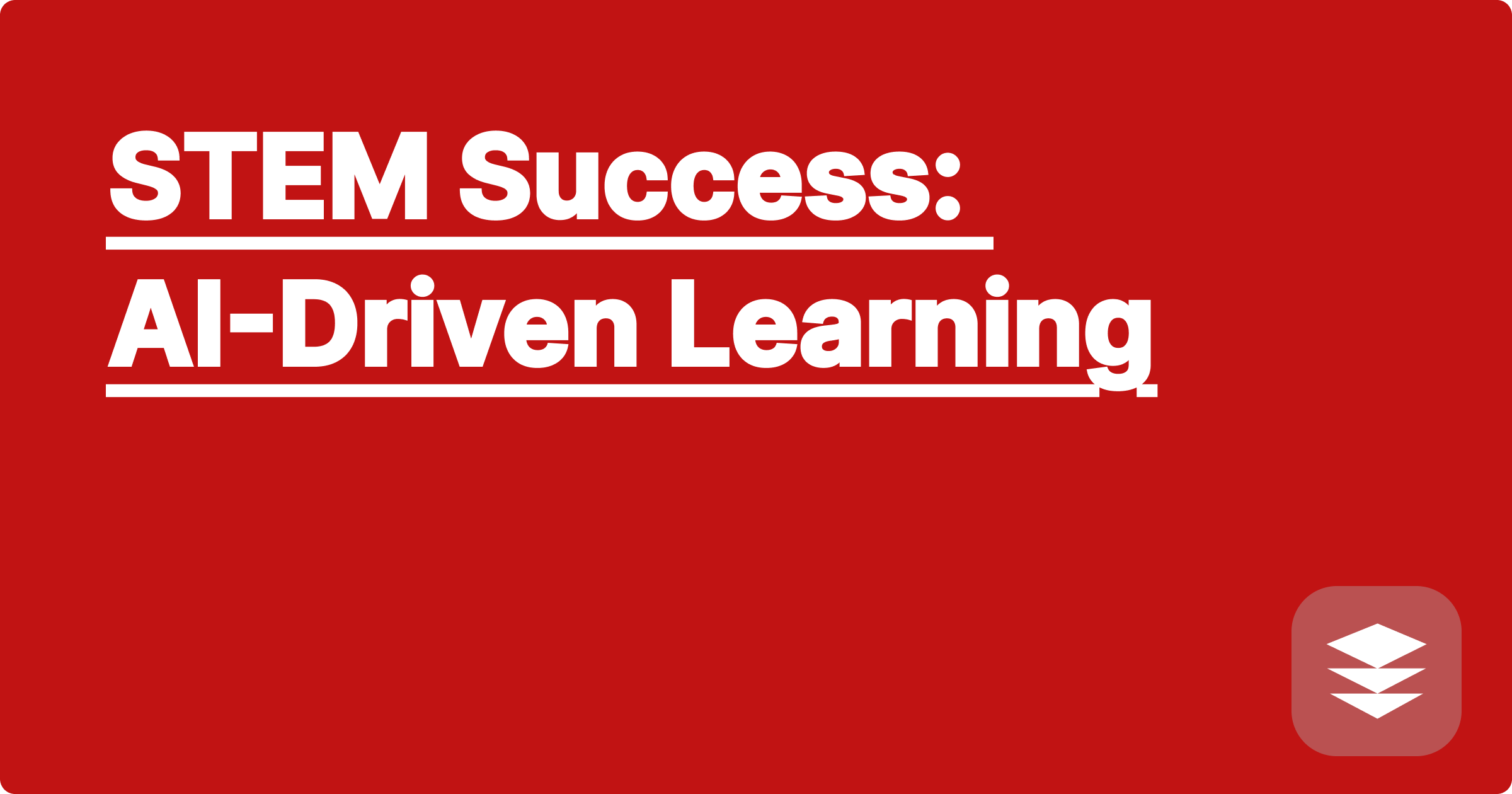
The STEM fields, encompassing science, technology, engineering, and mathematics, present a unique set of challenges for students and researchers. These disciplines often involve complex concepts, vast amounts of data, and intricate problem-solving. Fortunately, the rise of artificial intelligence (AI) offers powerful tools to navigate these complexities and unlock new opportunities for STEM success. AI-driven learning platforms and tools can personalize learning experiences, automate tedious tasks, and provide insightful analysis, ultimately empowering STEM practitioners to excel in their respective fields.
This shift towards AI-powered learning is particularly relevant for today’s STEM students and researchers. The sheer volume of information and the rapid pace of advancements can be overwhelming. AI can serve as a crucial ally, helping individuals stay updated, grasp complex concepts more effectively, and conduct research more efficiently. Embracing AI in STEM education and research isn't just about keeping up with the times; it's about gaining a competitive edge and contributing meaningfully to the advancement of knowledge.
STEM fields are characterized by a constant influx of new information, making it difficult for students and researchers to stay current. Traditional learning methods often struggle to keep pace with these rapid advancements. Furthermore, many STEM subjects involve complex concepts and intricate calculations, which can be challenging to grasp and apply. Students may struggle with understanding abstract theories or visualizing intricate processes. Researchers, on the other hand, often face the daunting task of sifting through massive datasets, identifying relevant information, and extracting meaningful insights. This can be time-consuming and require specialized expertise in data analysis and interpretation.
AI-powered tools like ChatGPT, Claude, and Wolfram Alpha offer a range of capabilities that can address these challenges. ChatGPT and Claude, for instance, can be used to explain complex concepts in simpler terms, provide personalized tutoring, and generate practice problems. They can also assist in brainstorming research ideas and drafting scientific papers. Wolfram Alpha, with its computational prowess, excels at performing complex calculations, generating visualizations, and providing step-by-step solutions to mathematical problems. By leveraging these AI tools strategically, STEM students and researchers can enhance their learning experience and boost their productivity.
Let’s consider a student struggling to understand a complex concept like quantum entanglement. They can start by engaging with ChatGPT or Claude, asking questions in natural language. For example, they could ask, “Explain quantum entanglement in simple terms with an analogy.” The AI can then provide a clear explanation, using relatable analogies to illustrate the concept. Next, the student can use Wolfram Alpha to explore the mathematical underpinnings of quantum entanglement, visualizing wave functions and calculating probabilities. This combination of conversational AI and computational tools provides a comprehensive learning experience. Similarly, a researcher exploring a new dataset could use ChatGPT to generate hypotheses and research questions. Then, they could utilize Wolfram Alpha to perform statistical analysis on the data, identifying trends and patterns. Finally, they could return to ChatGPT to help interpret the results and draft sections of their research paper.
Suppose a student needs to solve a differential equation. They can input the equation into Wolfram Alpha, which will not only provide the solution but also offer step-by-step explanations of the solution process. For example, entering "solve y'' + 4y = 0" into Wolfram Alpha yields the general solution y(x) = c₁ cos(2x) + c₂ sin(2x). Wolfram Alpha will also show the steps involved in solving the equation, providing valuable insight into the underlying mathematical principles. Another example involves a researcher investigating the properties of a specific protein. They can use ChatGPT to gather relevant research articles and summarize key findings. They can then use Wolfram Alpha to visualize the protein's 3D structure and analyze its amino acid sequence, gaining a deeper understanding of its function and properties.
To maximize the benefits of AI in STEM education and research, it is crucial to develop effective strategies. One key strategy is to learn how to formulate precise and targeted prompts for AI tools. Asking clear and specific questions will yield more accurate and relevant responses. Another important tip is to critically evaluate the information provided by AI. While these tools are powerful, they are not infallible, so it's essential to verify information and consult with human experts when necessary. Furthermore, it's important to integrate AI tools into a broader learning and research strategy. AI should be seen as a supplement to, not a replacement for, traditional learning methods and critical thinking skills.
In conclusion, AI-powered learning offers a transformative approach to STEM education and research. By embracing these tools strategically and developing effective strategies for their use, students and researchers can overcome challenges, enhance their understanding, and accelerate their progress. The future of STEM success lies in harnessing the power of AI to unlock human potential and drive innovation. Start exploring these tools today and discover how they can empower you on your STEM journey. Experiment with different AI platforms, find what works best for your specific needs, and integrate them into your daily workflow. The possibilities are vast, and the benefits are undeniable.
AI Physics Solver: Ace Your HW
AI Lab Assistant: Automate Tasks
STEM Success: AI-Driven Learning
AI Chemistry Solver: Get Help Now
AI Data Viz: Visualize Your Data
Boost Your Grades: AI Study Tools
AI Research Assistant: Find Sources